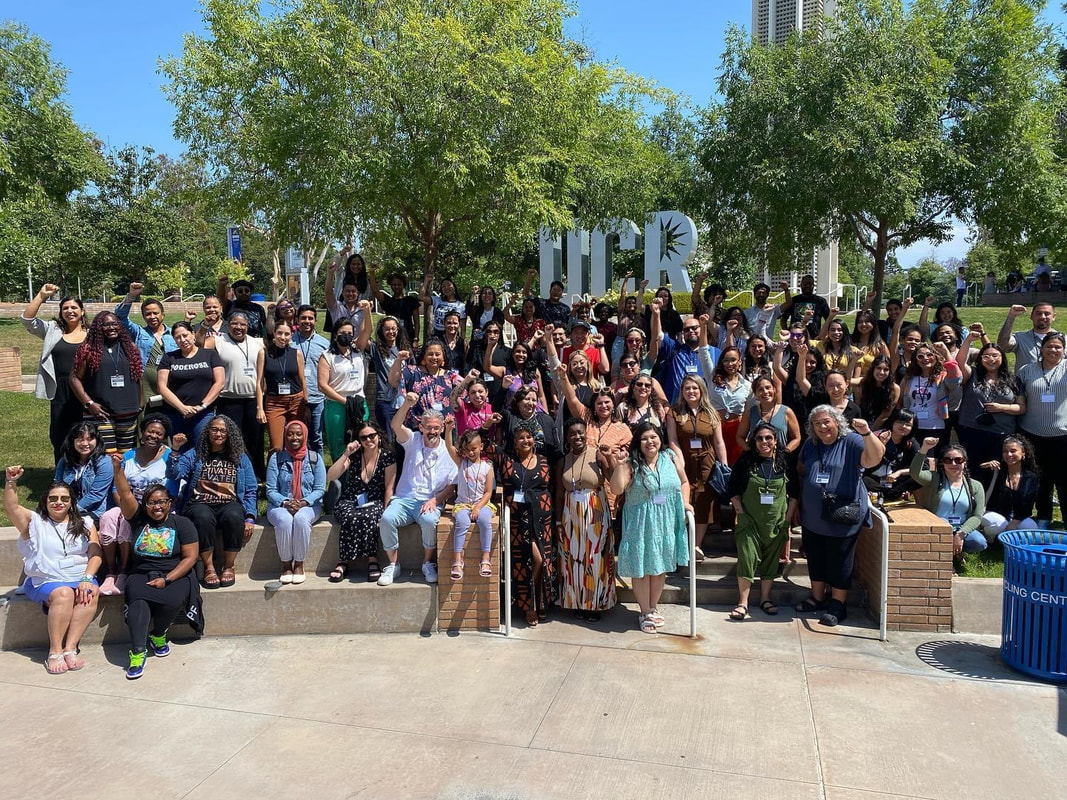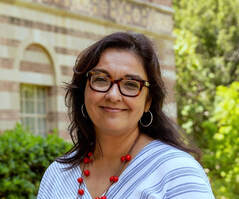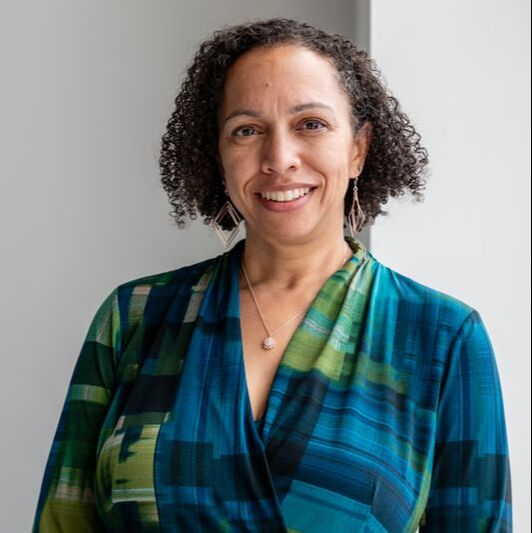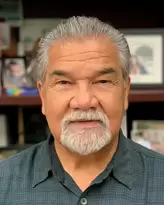2023-24 INSTITUTE FOR TEACHERS OF COLOR COMMITTED TO RACIAL JUSTICE
ITOC is on-going critical professional development space designed to support wellbeing, strengthen racial literacy, and cultivate the racial justice leadership capacities of teachers of Color who work in K-12 public schools that serve students of Color. A unique collaboration between the disciplines of Teacher Education, Educational Leadership, and Ethnic Studies, this national conference rigorously selects and supports ITOC Fellows across the U.S. and beyond each year.
Applications are now closed for the 2023-23 school year.
Please check back on February 1, 2024 for next year's application or sign up for our mailing list to stay in touch.
Applications are now closed for the 2023-23 school year.
Please check back on February 1, 2024 for next year's application or sign up for our mailing list to stay in touch.
KEYNOTES
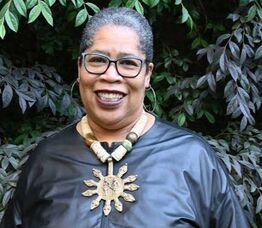
The Spirit of our Work: Black Women Teachers (Re)member with Dr. Cynthia Dillard
KEYNOTE, September 27, 2023; 4:30-6:00pm PST
In this keynote, Dr. Cynthia Dillard will engage us in a talk about her latest book, The Spirit of our Work: Black Women Teachers (Re)member. Her keynote will explore how engaging identity and cultural heritage can transform teaching and learning for Black women educators in the name of justice and freedom in the classroom. Dr. Dillard will show participants how educational settings might more conscientiously curate necessary structures of support that pay explicit attention to (re)membering not just the mind and body, but the spirit of Black women in the work of teaching and teacher education.
Dr. Cynthia B. Dillard (Nana Mansa II of Mpeasem, Ghana, West Africa) is the Dean and Professor of Teacher Education at Seattle University. Her work has appeared in numerous books and journals including The International Journal of Qualitative Studies in Education, Theory into Practice, The Journal of Teacher Education and Equity and Excellence in Education. Having held academic and leadership positions at both Washington State University and The Ohio State University, her most recent faculty position was as the Mary Frances Early Professor of Teacher Education at the University of Georgia (UGA). This endowed professorship is named after the first Black person to receive a degree from the University, Dr. Mary Frances Early. At UGA, Dr. Dillard also served as the Founder and Director of the Ghana Study Abroad in Education Program as well as Chair of the Department of Educational Theory and Practice. Dr. Dillard is currently Dean of the College of Education at Seattle University, returning full circle to her hometown of Seattle, Washington. Given her work within the academy and beyond, Dr. Dillard has received numerous awards for the impacts of her teaching, research, leadership and service. Her fourth book,The Spirit of Our Work: Black Women Teachers (Re)member was released in November, 2021.
KEYNOTE, September 27, 2023; 4:30-6:00pm PST
In this keynote, Dr. Cynthia Dillard will engage us in a talk about her latest book, The Spirit of our Work: Black Women Teachers (Re)member. Her keynote will explore how engaging identity and cultural heritage can transform teaching and learning for Black women educators in the name of justice and freedom in the classroom. Dr. Dillard will show participants how educational settings might more conscientiously curate necessary structures of support that pay explicit attention to (re)membering not just the mind and body, but the spirit of Black women in the work of teaching and teacher education.
Dr. Cynthia B. Dillard (Nana Mansa II of Mpeasem, Ghana, West Africa) is the Dean and Professor of Teacher Education at Seattle University. Her work has appeared in numerous books and journals including The International Journal of Qualitative Studies in Education, Theory into Practice, The Journal of Teacher Education and Equity and Excellence in Education. Having held academic and leadership positions at both Washington State University and The Ohio State University, her most recent faculty position was as the Mary Frances Early Professor of Teacher Education at the University of Georgia (UGA). This endowed professorship is named after the first Black person to receive a degree from the University, Dr. Mary Frances Early. At UGA, Dr. Dillard also served as the Founder and Director of the Ghana Study Abroad in Education Program as well as Chair of the Department of Educational Theory and Practice. Dr. Dillard is currently Dean of the College of Education at Seattle University, returning full circle to her hometown of Seattle, Washington. Given her work within the academy and beyond, Dr. Dillard has received numerous awards for the impacts of her teaching, research, leadership and service. Her fourth book,The Spirit of Our Work: Black Women Teachers (Re)member was released in November, 2021.
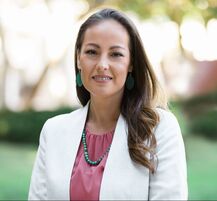
Racial Microaffirmations as a Response to Racial Microaggressions: Exploring Strategies for Healing from Everyday Racism with Dr. Lindsay Perez Huber
KEYNOTE, October 18, 2023; 4:30-6:00pm PST
Dr. Chester Piece first named racial microaggressions to describe the “subtle and stunning” forms of everyday racism encountered by People of Color that, over time, wear down the body, mind, and spirit. We will explore the concept of racial microaggressions as a tool to name this often subtle form of racism in order to challenge it, within and outside of education spaces. We will also explore a newer, related concept of racial microaffirmations—moments of shared cultural intimacy Communities of Color engage to acknowledge each others’ dignity and shared humanity. Together, we will explore how to cultivate space for these moments that can offer opportunities for better well-being and healing from racial microaggressions.
Dr. Lindsay Pérez Huber is Professor in the College of Education at California State University, Long Beach. She leads and coordinates the master’s program in Social & Cultural Analysis of Education (SCAE) program. Her research specializations include race, immigration and higher education, racial microaggressions, and critical race feminista methodologies and epistemologies. Her work is known for further developing theoretical and conceptual frameworks in Critical Race Theory (CRT), bridging CRT and Chicana Feminist perspectives in Education, and for her contributions in understanding Latinx undocumented student experiences. Dr. Pérez Huber is a Ford Foundation Fellow and Faculty Fellow of the American Association of Hispanics in Higher Education (AAHHE). She is also the past Vice President of the Critical Race Studies in Education Association (CRSEA). During her career, Dr. Pérez Huber has supported over 65 thesis and dissertation Students of Color as chair and/or committee member. Dr. Pérez Huber was a recipient of the 2019 Derrick Bell Legacy Award for her contributions to Critical Race Theory (CRT) by the Critical Race Studies in Education Association (CRSEA). She received her Ph.D. in Social Science and Comparative Education (SSCE), with a specialization in Race and Ethnic Studies from the UCLA Graduate School of Education and Information Studies. In 2020, Dr. Pérez Huber published the co-authored book, Racial Microaggressions: Using Critical Race Theory to Respond to Everyday Racism. She is also co-editor of the 2021 book, Why They Hate Us: How Racist Rhetoric Impacts Education.
KEYNOTE, October 18, 2023; 4:30-6:00pm PST
Dr. Chester Piece first named racial microaggressions to describe the “subtle and stunning” forms of everyday racism encountered by People of Color that, over time, wear down the body, mind, and spirit. We will explore the concept of racial microaggressions as a tool to name this often subtle form of racism in order to challenge it, within and outside of education spaces. We will also explore a newer, related concept of racial microaffirmations—moments of shared cultural intimacy Communities of Color engage to acknowledge each others’ dignity and shared humanity. Together, we will explore how to cultivate space for these moments that can offer opportunities for better well-being and healing from racial microaggressions.
Dr. Lindsay Pérez Huber is Professor in the College of Education at California State University, Long Beach. She leads and coordinates the master’s program in Social & Cultural Analysis of Education (SCAE) program. Her research specializations include race, immigration and higher education, racial microaggressions, and critical race feminista methodologies and epistemologies. Her work is known for further developing theoretical and conceptual frameworks in Critical Race Theory (CRT), bridging CRT and Chicana Feminist perspectives in Education, and for her contributions in understanding Latinx undocumented student experiences. Dr. Pérez Huber is a Ford Foundation Fellow and Faculty Fellow of the American Association of Hispanics in Higher Education (AAHHE). She is also the past Vice President of the Critical Race Studies in Education Association (CRSEA). During her career, Dr. Pérez Huber has supported over 65 thesis and dissertation Students of Color as chair and/or committee member. Dr. Pérez Huber was a recipient of the 2019 Derrick Bell Legacy Award for her contributions to Critical Race Theory (CRT) by the Critical Race Studies in Education Association (CRSEA). She received her Ph.D. in Social Science and Comparative Education (SSCE), with a specialization in Race and Ethnic Studies from the UCLA Graduate School of Education and Information Studies. In 2020, Dr. Pérez Huber published the co-authored book, Racial Microaggressions: Using Critical Race Theory to Respond to Everyday Racism. She is also co-editor of the 2021 book, Why They Hate Us: How Racist Rhetoric Impacts Education.
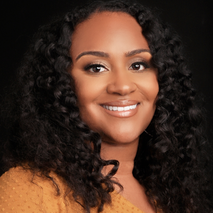
Cultivating Genius and Joy in Education through Culturally and Historically Responsive Pedagogies with Dr. Gholdy Muhammad
PUBLIC VIRTUAL EVENT, November 1, 2023; 4:30-5:30pm PST
Co-sponsored by: UCR School of Education's K-12 Ethnic Studies Speaker Series
In this keynote, Dr. Gholdy Muhammad offers a unique, culturally, and historically responsive approach to cultivating genius and joy in education. This approach is essential for accelerating the growth of all students and uniquely youth of color, who have been traditionally underserved in learning standards, policies, and school practices. She will present her equity framework, called the HILL Model, to help educators develop students’ histories, identities, literacies, and liberation. The HILL Model consists of five pursuits in teaching and learning:
Dr. Gholnecsar (Gholdy) Muhammad is an Associate Professor of Literacy, Language, and Culture at the University of Illinois at Chicago. She has previously served as a classroom teacher, literacy specialist, school district administrator, curriculum director, and school board president. She studies Black historical excellence in education, intending to reframe curriculum and instruction today. Dr. Muhammad’s scholarship has appeared in leading academic journals and books. She has also received numerous national awards and is the author of the best-selling book, Cultivating Genius: An Equity Model for Culturally and Historically Responsive Literacy. She also co-authored Black Girls’ Literacies: An Edited Volume. Her Culturally and Historically Responsive Education Model has been adopted across thousands of U.S. schools and districts across Canada. In 2022 and 2023, she was named among the top 1% Edu-Scholar Public Influencers due to her impact on policy and practice. She has also received numerous awards from national organizations and universities. She was named the American Educational Research Association Division K Early Career Award and the 2021 NCTE Outstanding Elementary Educator in the English Language Arts. She has led a federal grant with the United States Department of Education to study culturally and historically responsive literacy in STEM classrooms. Her newest book, Unearthing Joy, is the sequel to Cultivating Genius and provides a practical guide for putting culturally and historically responsive education into curricular practice.
PUBLIC VIRTUAL EVENT, November 1, 2023; 4:30-5:30pm PST
Co-sponsored by: UCR School of Education's K-12 Ethnic Studies Speaker Series
In this keynote, Dr. Gholdy Muhammad offers a unique, culturally, and historically responsive approach to cultivating genius and joy in education. This approach is essential for accelerating the growth of all students and uniquely youth of color, who have been traditionally underserved in learning standards, policies, and school practices. She will present her equity framework, called the HILL Model, to help educators develop students’ histories, identities, literacies, and liberation. The HILL Model consists of five pursuits in teaching and learning:
- Identity Development—Helping youth to make sense of who they are and others.
- Skill Development— Helping youth to develop proficiencies across the content areas and state learning standards.
- Intellectual Development—Helping youth gain new knowledge set into the context of the world.
- Criticality—Helping youth name, understand, question, and disrupt oppression in the world.
- Joy—Helping youth uplift beauty, aesthetics, truth, and personal space fulfillment within humanity.
Dr. Gholnecsar (Gholdy) Muhammad is an Associate Professor of Literacy, Language, and Culture at the University of Illinois at Chicago. She has previously served as a classroom teacher, literacy specialist, school district administrator, curriculum director, and school board president. She studies Black historical excellence in education, intending to reframe curriculum and instruction today. Dr. Muhammad’s scholarship has appeared in leading academic journals and books. She has also received numerous national awards and is the author of the best-selling book, Cultivating Genius: An Equity Model for Culturally and Historically Responsive Literacy. She also co-authored Black Girls’ Literacies: An Edited Volume. Her Culturally and Historically Responsive Education Model has been adopted across thousands of U.S. schools and districts across Canada. In 2022 and 2023, she was named among the top 1% Edu-Scholar Public Influencers due to her impact on policy and practice. She has also received numerous awards from national organizations and universities. She was named the American Educational Research Association Division K Early Career Award and the 2021 NCTE Outstanding Elementary Educator in the English Language Arts. She has led a federal grant with the United States Department of Education to study culturally and historically responsive literacy in STEM classrooms. Her newest book, Unearthing Joy, is the sequel to Cultivating Genius and provides a practical guide for putting culturally and historically responsive education into curricular practice.
Critically Transforming Teacher Education: Insights from Racial Justice Leaders with Dr. Emma Hipolito and Dr. Lynette MawhinneyTeacher Educator of Color Convening, January 26 2024; 12:00-2:00 PM PSTFor the past three years, ITOC has hosted a Teacher Educator of Color Convening in January to support the needs of university-based teacher educators of Color pursuing racial justice in their programs. 2024's convening consisted of a two-hour virtual workshop that included a panel discussion and breakout groups with racial justice leaders in teacher education: Dr. Lynnette Mawhinney of Rutgers University-Newark and Dr. Emma Hipolito of UCLA's Teacher Education Program.
|
Dr. Emma Hipólito is the Director of the UCLA Teacher Education Program. She earned her teaching credential and a master’s degree at UCLA. Then, she worked for over a decade as a secondary bilingual history-social science teacher in middle and high school districts within LA County. Emma returned to UCLA to co-lead the UCLA History-Geography Project, a site of the California History-Social Science Project, partnering with in-service teachers and districts to bring a more culturally responsive and critical lens to history-social science instruction. She is an experienced teacher educator, supporting teacher residency programs and the establishment of an Ethnic Studies pathway within UCLA TEP. Emma is currently working on a federally funded grant focused on the preparation of middle school teachers. This grant will work with pre-service teachers, mentors, and leaders on racial literacy development and a transformative approach to socio-emotional learning.
Dr. Lynnette Mawhinney is Associate Dean of Strategic Academic Initiatives, Chair of the Department of Urban Education, and Professor of Urban Education at Rutgers University-Newark. She is also affiliated faculty in the Africana Studies Department. She has taught in a range of urban educational contexts, including middle school, high school, undergraduate, graduate, and GED and employment training programs for TANF (formerly known as Welfare) recipients and dislocated workers. She has also had the privilege to conduct teacher training in the U.S., Vietnam, Taiwan, Thailand, South Africa, and Egypt.
In 2013, Dr. Mawhinney was awarded the prestigious Fulbright Core Scholar award. For the award, she spent one academic year (2013-2014) as Associate Professor of Educational Psychology teaching courses in educational trends and issues, action research, and child and adolescent development at Bahrain Teachers College in The University of Bahrain. In 2020, Dr. Mawhinney was the recipient of the American Educational Studies Association’s Critics Choice Book Award for There Has to be a Better Way: Lessons from Former Urban Teachers.
Dr. Lynnette Mawhinney is Associate Dean of Strategic Academic Initiatives, Chair of the Department of Urban Education, and Professor of Urban Education at Rutgers University-Newark. She is also affiliated faculty in the Africana Studies Department. She has taught in a range of urban educational contexts, including middle school, high school, undergraduate, graduate, and GED and employment training programs for TANF (formerly known as Welfare) recipients and dislocated workers. She has also had the privilege to conduct teacher training in the U.S., Vietnam, Taiwan, Thailand, South Africa, and Egypt.
In 2013, Dr. Mawhinney was awarded the prestigious Fulbright Core Scholar award. For the award, she spent one academic year (2013-2014) as Associate Professor of Educational Psychology teaching courses in educational trends and issues, action research, and child and adolescent development at Bahrain Teachers College in The University of Bahrain. In 2020, Dr. Mawhinney was the recipient of the American Educational Studies Association’s Critics Choice Book Award for There Has to be a Better Way: Lessons from Former Urban Teachers.
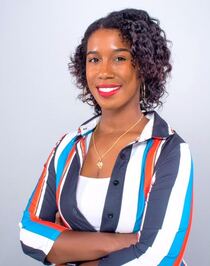
And Yet Do WE Marvel: Imagining an Educational Future That Might Be with Dr. Stephanie Toliver
Keynote, February 28 2024; 4:30-6:00pm PST
In an interview, science fiction author, Samuel R. Delaney stated that “science fiction isn’t just thinking about the world out there. It is also thinking about how the world might be.” He posed that in order to change the world we live in, we must be able to think about worlds that work differently, that refuse historical and contemporary oppression and uplift new, more anti-oppressionist futures. Of course, this world has proven itself to be consistently at odds with the project of anti-oppression, so it is imperative that we learn to think about and create worlds that work differently, educational worlds that might be. Thus, in this interactive talk, Toliver will discuss how she has worked with young people to create these future worlds via speculative story. She will also walk attendees through a science fiction thought experiment where we will consider our current world, but imagine a racially just world “out there,” a world that is possible.
S. R. Toliver is an assistant professor of Curriculum and Instruction at the University of Illinois at Urbana-Champaign whose scholarship centers the freedom dreams of Black youth and honors the historical legacy that Black imaginations have had and will have on activism and social change. She is the author of Recovering Black Storytelling in Qualitative Research: Endarkened Storywork, and her academic work has been published in several journals, including Journal of Literacy Research and Equity, Excellence & Education.
Keynote, February 28 2024; 4:30-6:00pm PST
In an interview, science fiction author, Samuel R. Delaney stated that “science fiction isn’t just thinking about the world out there. It is also thinking about how the world might be.” He posed that in order to change the world we live in, we must be able to think about worlds that work differently, that refuse historical and contemporary oppression and uplift new, more anti-oppressionist futures. Of course, this world has proven itself to be consistently at odds with the project of anti-oppression, so it is imperative that we learn to think about and create worlds that work differently, educational worlds that might be. Thus, in this interactive talk, Toliver will discuss how she has worked with young people to create these future worlds via speculative story. She will also walk attendees through a science fiction thought experiment where we will consider our current world, but imagine a racially just world “out there,” a world that is possible.
S. R. Toliver is an assistant professor of Curriculum and Instruction at the University of Illinois at Urbana-Champaign whose scholarship centers the freedom dreams of Black youth and honors the historical legacy that Black imaginations have had and will have on activism and social change. She is the author of Recovering Black Storytelling in Qualitative Research: Endarkened Storywork, and her academic work has been published in several journals, including Journal of Literacy Research and Equity, Excellence & Education.
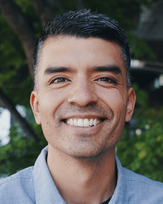
Heart at the Center: Embodying Love Through a Pedagogy of Nonviolence with Mike Tinoco
Keynote, March 20 2024; 4:30-6:00pm PST
In this talk, high school educator and nonviolence trainer Mike Tinoco will draw from his forthcoming book, Heart at the Center, and explore the importance of centering love in our practice as teachers—for our students, ourselves, and each other. Inspired by the civil rights movement and other nonviolence traditions, Mike’s talk will support educators in viewing love as a powerful way to collectively reclaim our humanity, heal, and sustain relationality. And when we forge learning spaces, relationships, and ways of being motivated by love, then we free ourselves from replicating that which inhibits love—violence, domination, lovelessness.
Mike Tinoco is a high school educator and nonviolence teacher from San José. His work draws primarily from Kingian Nonviolence, Nonviolent Communication, and Aikido with the aim of strengthening interconnectedness, healing together, and fighting for collective liberation. He is committed to working alongside his students, educators, and everyday people in creating a world that demands justice, centers love, and holds room for everyone to be part of the Beloved Community.
Keynote, March 20 2024; 4:30-6:00pm PST
In this talk, high school educator and nonviolence trainer Mike Tinoco will draw from his forthcoming book, Heart at the Center, and explore the importance of centering love in our practice as teachers—for our students, ourselves, and each other. Inspired by the civil rights movement and other nonviolence traditions, Mike’s talk will support educators in viewing love as a powerful way to collectively reclaim our humanity, heal, and sustain relationality. And when we forge learning spaces, relationships, and ways of being motivated by love, then we free ourselves from replicating that which inhibits love—violence, domination, lovelessness.
Mike Tinoco is a high school educator and nonviolence teacher from San José. His work draws primarily from Kingian Nonviolence, Nonviolent Communication, and Aikido with the aim of strengthening interconnectedness, healing together, and fighting for collective liberation. He is committed to working alongside his students, educators, and everyday people in creating a world that demands justice, centers love, and holds room for everyone to be part of the Beloved Community.
An Everyday Apocalypse: Unveiling Racial Microaggressions Across Time, Space and Cells with Dr. Kenjus Watson in conversation with Dr. Daniel Solórzano
Public Virtual Event; April 24 2024; 4:30-6:00pm PST
In "An Everyday Apocalypse: Unveiling Racial Microaggressions Across Time, Space, and Cells," we invite community members to join us in mapping and countering the harm inflicted on young people resulting from their daily exposures to the inherent anti-blackness and coloniality of schooling. Our conversation will highlight how the characteristics of these racial microaggressions as well as our communities' informed responses to them morph over time, space, and contexts. We hope participants leave the session with tangible support in re-membering practices that promote holistic wellness and microaffirmative educational environments.
|
Dr. Kenjus Watson (he/him) is a father, partner, brother, uncle and son who is passionate about reaching back to grounded wisdom, seeding into present challenges, and bridging towards more loving and sustainable futures. Kenjus is also an Assistant Professor of Urban Education at American University where teaches courses in the EdD Educational Policy and Leadership Program within the School of Education. Additionally, Kenjus works alongside community responsive projects as research lead, educator, and co-founder of the Institute for Regenerative Futures in the College of Education at San Jose State University. His interdisciplinary research has focused on the biopsychosocial impact of everyday anti-blackness and colonization (i.e., racial microaggressions) on Black, Indigenous, and other People of Color, as well as the promise of school abolition, re-Indigenization, and apocalyptic education to bring about healing and wellness for people and the planet. Kenjus earned his PhD in Education with an emphasis in Race and Ethnic Studies at UCLA.
|
|
Dr. Daniel Solórzano is a Professor of Social Science and Comparative Education, and Chicana/o and Central American Studies at the University of California, Los Angeles. He is also the Director of the Center for Critical Race Studies in Education at UCLA. His teaching and research interests include critical race theory in education; racial microaggressions; racial microaffirmations; and critical race spatial analysis. Dr. Solórzano has authored more than 100 research articles, book chapters, and books on issues related to educational access and equity for underrepresented student populations and communities in the United States. In 2007, Professor Solórzano received the UCLA Distinguished Teaching Award. In 2012, Solórzano was awarded the Critical Race Studies in Education Association Derrick A. Bell Legacy Award. In 2014, Solórzano was elected a Fellow of the American Education Research Association. Professor Solórzano received the Distinguished Alumni Award from the Claremont Graduate University in 2020. In 2020, Solorzano was elected to the National Academy of Education.
|
ITOC FELLOWS SELECTION CRITERIA
Participants are selected based on the following criteria:
ITOC Fellows
ITOC Teacher Educator Fellows
ITOC Fellows
- Identify as a Black, Indigenous, or person of Color (BIPOC) educator (pre-service teachers are eligible) or in a related capacity within K-12 schools (i.e. school administrator, teacher on special assignment, counselor, after-school educator)
- Work (or will work) in a K-12 public school serving majority BIPOC students
- Demonstrate an advanced level of racial literacy
- Have an asset framing of communities of Color
- Committed to critical and theoretically driven approaches to transforming schools
ITOC Teacher Educator Fellows
- Identify as Black, Indigenous, or person of Color (BIPOC) teacher educator
- Work in a university setting training K-12 classroom educators
- Demonstrate an advanced level of racial literacy
- Have an asset framing of BIPOC communities
- Committed to critical and theoretically driven approaches to transforming teacher education programs and supporting pipelines of critical BIPOC educators into the field
2023-24 VIRTUAL PROGRAMMING INCLUDES:
- 6 Keynote Talks with Community Building Time (3 fall, 3 spring)
- 2 Four-Session Racial Justice Mini-courses (1 fall, 1 spring)
- 2 Public Talks in collaboration with UCR's K-12 Ethnic Studies Speaker Series
- Femtorship Program (quarterly meetings and pairing of femtors/femtees for independent meetings)
REGISTRATION FEES FOR SELECTED FELLOWS
To cover the costs of speakers and coaches, ITOC charges a small registration fee for selected participants who will receive full access to all virtual programming. We offer no official scholarships, but if there is financial hardship, please do not hesitate to reach out and we will do our best to accommodate.
General Registration Fee: $200
Financial Hardship Registration Fee (individuals paying out of pocket, who are experiencing financial hardship): $100
General Registration Fee: $200
Financial Hardship Registration Fee (individuals paying out of pocket, who are experiencing financial hardship): $100
